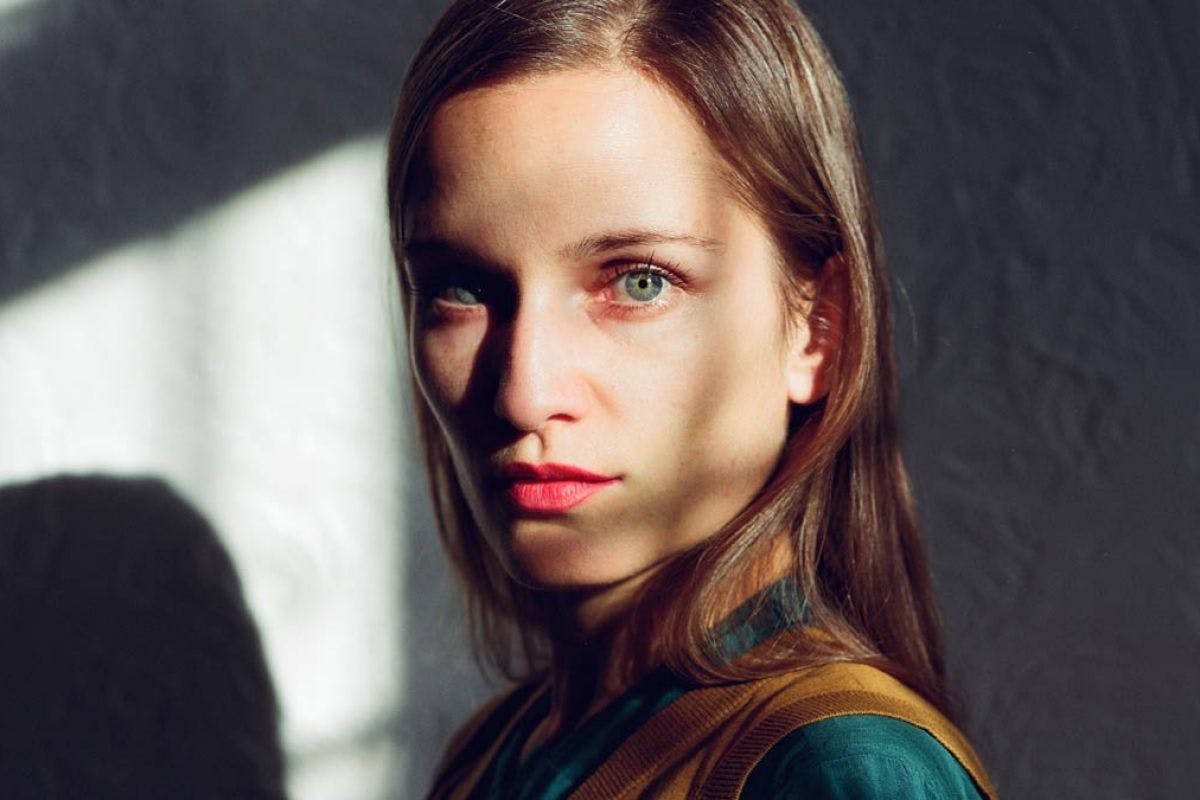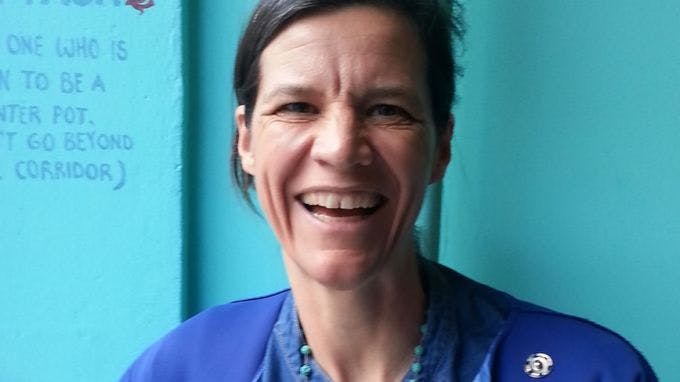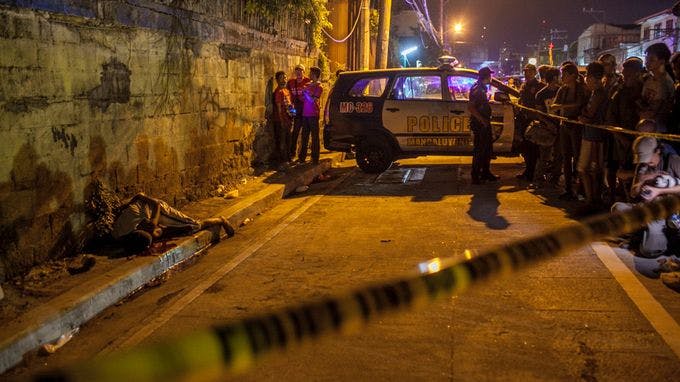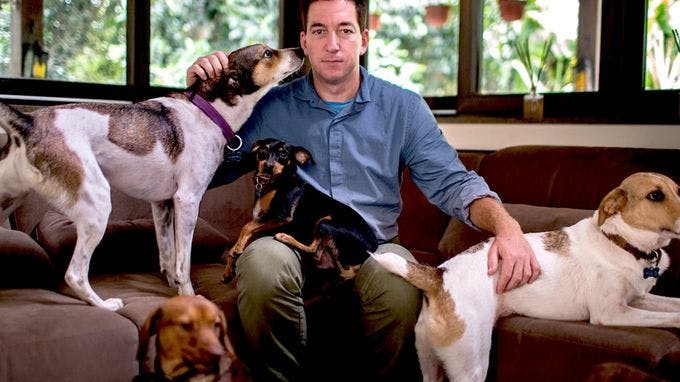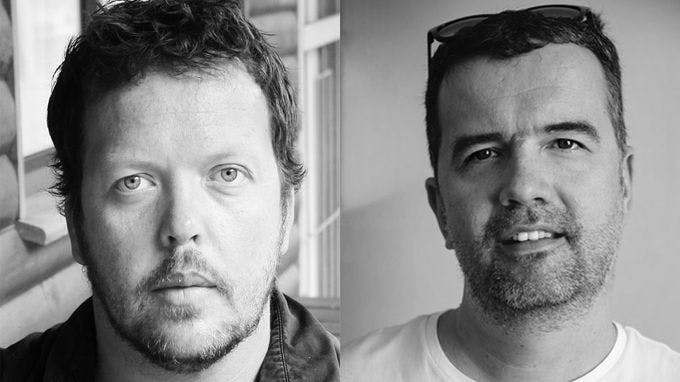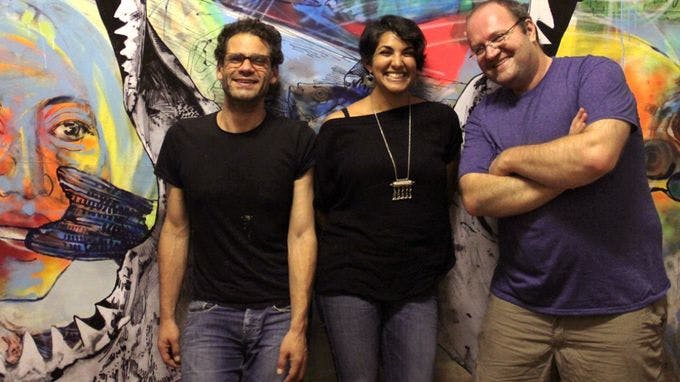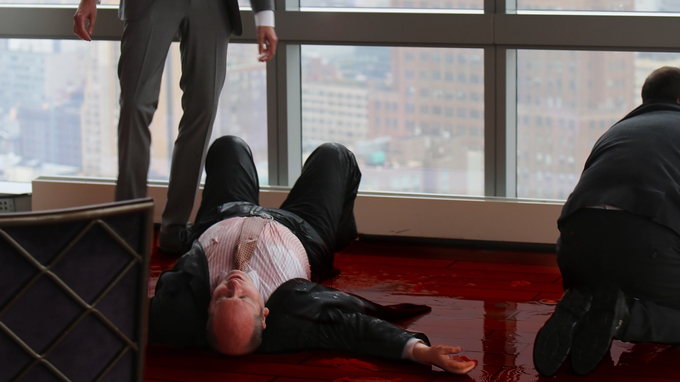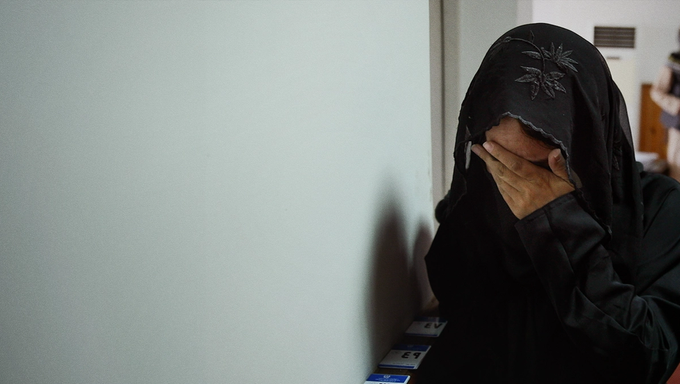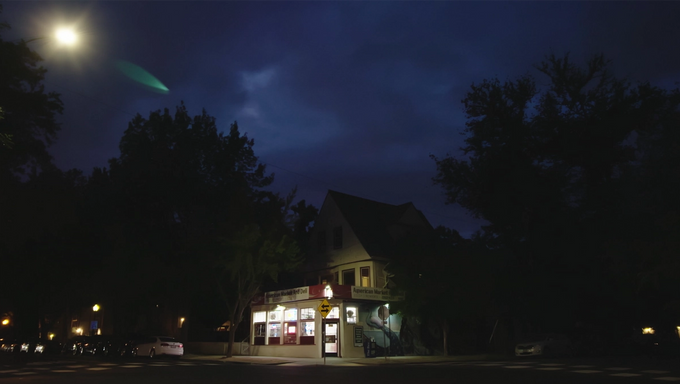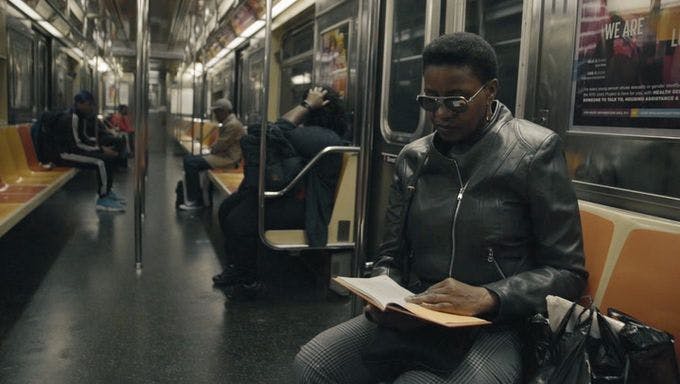With Notes from the Border, Iva Radivojevic revisits the thematic concerns of her recent feature, Evaporating Borders, which was an intimate account of migrants living in Cyprus — the island to which Radivojevic moved when she was a young girl fleeing the war in Yugoslavia. Her new film also returns the director to the elliptical short form that she has extensively explored on her website, Iva Asks, which helped make her one of Filmmaker Magazine’s 25 New Faces of Independent Film in 2013. The day before her new film premiered at the New York Film Festival, I met with New York-based Radivojevic to talk about the making of Notes from the Border.
Did the Field of Vision team come to you and say — we know the work you’ve been doing, we like what you did with Evaporating Borders, and we’d like you to pursue this story?
Radivojevic: Right — we know what you’ve been doing … No, what happened was, they knew of my work, they liked the work — Laura actually executive produced my last film — but they approached me with something entirely different. It was about militarization of the police in the U.S. But while I was researching that the laws changed, something fell through, and it was no longer seeming like a good direction to go into. Meanwhile I was following the story about the migrants, the refugees, which back then was only a small story. And I said, here’s an interesting thing that’s happening on this Greek island of Kos, and they really liked it. But I was actually a bit skeptical about doing the same kind of story.
Because your feature is largely about this topic. Radivojevic: Which was about the island of Cyprus — so a different country. And it was Palestinian refugees, not Syrian refugees. But the same topic, basically.
Let’s step back briefly to talk about your relationship to this region. What brought you to Cyprus in the first place?
Radivojevic: I grew up in Cyprus. Once the war in Yugoslavia started, my mom, my sister and I left and went to Cyprus. I’ve been living here in New York for a long time, but I visit my family a lot, and each time I went back I realized there was a new wave of migrant refugees coming. And the attitudes towards them are different than they were towards us when we arrived. There was a rise of xenophobia, racism, attacks, all kinds of stuff. So I thought, this is something we need to talk about, and that’s how that project came about. Because I grew up there I knew it very well. I speak the language, and thought I could talk about it through an immigrant lens because I was an immigrant.
Which then leads to this new film, and a situation that you’re able to recognize as related to the one you recently filmed. Except this was happening right now, it was unfolding right before your eyes.
Radivojevic: It was this summer. Things were happening so fast that literally week by week the situation was getting progressively worse and worse. So I would film in one location, leave, and then a week later there would be some kind of riot there. It was incredible, the speed at which things were changing, and the speed at which the numbers of refugees were increasing. So the initial story was oh, here’s this island that’s dealing with a huge number of refugees coming in. There’s this makeshift, burned-down hotel where nobody was taking care of the refugees, where they had no food or anything. So this was something to look at. And when I got there it was that, but it was so many more things. And it was all just getting piled up. The island of Kos was getting hundreds of refugees a day, and it was getting progressively worse. Then people started dying, and that’s when people started paying attention. Initially I was going to make this small story about the hotel, but it grew into a story about multiple borders.
You felt that the hotel wasn’t enough, that you needed to move around and chase the story as it developed?
Radivojevic: My initial thought was to take a personal, poetic approach to it, which my other films also take. But then we switched gears a little bit.
To my eyes there’s so much poetry to the film you made, both in your shots and your construction of those shots. So what do you mean in terms of switching gears? Being clear about certain information and the setting?
Radivojevic: Yeah. It’s tricky when you do something that’s happening right now, at this moment. What do we want to convey? What’s important? We want to give you the information, but we want to also give you this way to connect, and potentially go a little deeper than the dissemination of information. That was a challenge.
So how did that result in the film you made?
Radivojevic: It was a collaborative effort. We had to think through it all together. I was working with really great people, whose opinions and collaboration I really appreciate. It was a first time for me, because usually when you’re making your own film, you’re making your own film. Whereas in this context you’re working with other people, and you have to come up with something that works for everybody. It was interesting and challenging at the same time. You kind of have to feel it out — how does that feel, how does this feel, and how is it still mine?
And that was in the construction of it?
Radivojevic: The editing.
Which, considering how recently you were overseas, I imagine you started on the ground?
Radivojevic: I would send the rough cuts. And then we’d go over it. And I suggested that I should go to the borders. Then I would send another rough cut, and we’d talk about it more.
You’d never worked like this before, where it’s unfolding as you’re shooting and you’re working with a production team back home?
Radivojevic: No.
What was it like being more of a reporter than you normally think of yourself as being?
Radivojevic: Even when I’ve dealt with political issues in my films, I don’t like to take an advocacy or even journalistic approach, so that was a challenge. I was doing something that was very present — I’m reporting on it, I’m being a journalist, but at the same time how do I say it in a voice that’s my voice, that’s true to my vision, that’s how I wish to express things?
Were there things that you were avoiding because of those concerns?
Radivojevic: It’s less of a conscious thing than a feeling thing. At some point I really got sick of putting the camera in people’s faces. I tried to pick up the camera and I would feel disgusted with myself and I couldn’t do it. So I decided early on that I would not have interviews — which is something I don’t really like anyway. It was very much an instinctual thing. I was trying to be more present with the people I was meeting, to feel the experience rather than let me document what’s happening.
So when would you pick up the camera? What would you shoot?
Radivojevic: I would film situations. But I wouldn’t impose on people. If they wanted to talk to me they’d talk to me. I spent two weeks with a group of people, 12 people. And we did everything together. We went to play pool, we went out to eat, we went to the beach, we went to a club. I thought how can my presence — because it’s my choice to be there, it’s not their choice to be there — how can my presence be helpful to you? How can I make our crossing of paths truly beneficial? I just decided that I wanted to experience what they’re experiencing. Of course I can’t really, because I’m coming from a different place. But I can at least have an understanding, which can somehow translate into the film. Not in the sense that I’m documenting it, but that I’m feeling it.
While there, in the moment, are you constantly thinking about how to convey that? And about how will it look on screen?
Radivojevic: I do because I also edit. When I’m filming something immediately I’m editing — probably like you, as you interview me. That idea might change five times but I want to be covered, at least in one or two ways. If I was doing an observational piece or if I was doing a voiceover piece, I want to be covered. Then after that comes the collaborative process, because it is a commissioned piece, it’s not solely my decision. There’s something they’re searching for that they want to talk about, and so there’s a balance that needs to be reached in terms of what they want to serve and what I want to serve.
As an editor, was it challenging to turn this around so quickly?
Radivojevic: Yeah, but a few years ago I started this blog, and this was when I first started making films. And I made myself make a short film a week. This was like an exercise. So I became so good and fast at editing things, and turning things over quickly. So I told Laura, listen, that’s not a problem. That’s the easiest part of this whole thing for me.
Talking to Laura, AJ and Charlotte about the Field of Vision project, they like the idea of setting up challenges for filmmakers. If working quickly wasn’t too challenging for you, what was?
Radivojevic: The biggest challenge was that the story was getting out of control. I couldn’t be everywhere at the same time. I couldn’t chase each sensational thing that happened. And that’s not really what I want to talk about anyway. So the challenge was how do I present this when it’s all in the news, when everyone knows about it. How do I make it relevant, and at the same time speak to something larger than that this was happening. I was really struggling with this. So there was this idea to make it a diary. And I think that works, because I can say — this is from a specific section of the summer, this is where it starts, this is how it progressed, and this is what I found on my way.
I like how it allows for your perspective as well is your subject N’s perspective without those perspectives being in conflict or incompatible. It formally allows for both stories. And throughout, you also open cracks into other perspectives as well. The fact that Kos is a vacation spot, that people are on vacation while this is happening around them, it’s a fact and a POV that stands alongside these others. Radivojevic: It’s so surreal. You have these two realities. I found myself in the same dilemma — you know, I want to go for a swim. You don’t know how to deal with it. I was in the refugee camps for two or three weeks, and it was hard for me — I can’t even imagine how hard it is for the people actually going through this and living there. Then to throw myself back into this other thing? It’s disturbing to me. You go through a range of emotions — shock, then acceptance, then “how do I help?” And then, “I can’t do anything.” Then after I left it became 15 times worse. The whole city became a tent city. At first we’d be on this beach at 4 or 5 o’clock in the morning, waiting for the boats to arrive. It was us, the smugglers, some fishermen waiting for the boat so that they could take the engine and sell it — you know, Greece is in crisis too. Then two weeks later you don’t have to go to the beach at 4 in the morning. They were just coming. Every time of the day. That’s how fast things were moving.
What was it like in the refugee camp?
Radivojevic: The camp had no water, no electricity. And the food was only coming from the volunteers, who’d find food from restaurants and bring it. There’s no way to talk about it, really.
Even though you were supposed to pursue a different story entirely for Field of Vision, and though you’ve got other, very different projects that you’re pursuing, do you feel drawn back to this topic?
Radivojevic: I do, but not in a bad sense. I had an incredible experience this summer and met some incredible people. And it was a humbling experience. Yet I think it’s time to move on now, after this. No more films with the word “border” in it. But truly this, for me, was a life-changing thing.
Correction: September 30, 2015 An earlier version of this interview incorrectly stated that during Radivojevic’s visit to the Greek island of Kos this past summer, 4,000 refugees were arriving daily. The interview has been updated to reflect that hundreds of refugees were arriving daily.
